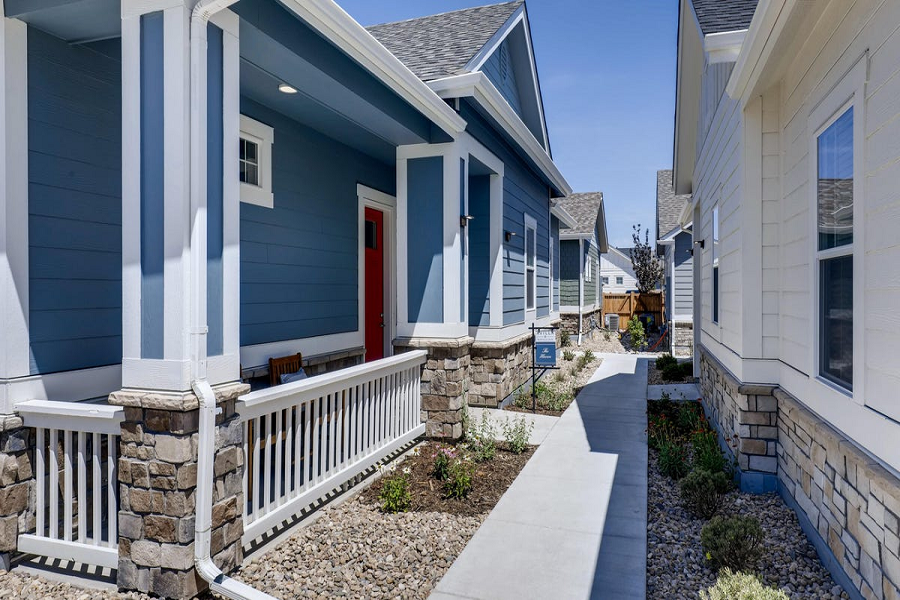New rental record set after a significant increase in the previous month

New rental record set after a significant increase in the previous month
We hear of records being broken and new records achieved – usually in the field of sports. Now we are facing records in the real estate sector – those of the rental market. Rental rates have been rising and, according to the Goodlord Rental Index, “Rents rose by an average of 2.8{25d2b18a95c5c6f7eb4ced5b120adc2827c7011e7253ae4e60356a2e2ad96975} during June, taking the average cost of a rental property in England from £1,020 to £1,050 per month.” https://blog.goodlord.co/rents-keep-climbing-and-voids-drop-in-june-as-lettings-market-retains-heat-goodlord-rental-index Another authority has said that private rents have hit record highs, jumping by a huge percentage in some areas, arriving at an average monthly rent of £1,126 in July. As the Sittingbourne letting agents will agree, there was a comparable rise of rentals in the South East as well.
There are various reasons for this new rental record, some of which we explain below:
Shortage of affordable housing:
As the demand grows, so does the rental rate. The constant imbalance between supply and demand is one of the reasons for the increase in rates. This has not only affected the private rental sector but has hit those tenants in social housing as well. The government’s plan to provide a set target of 300,000 new homes has not been met. This is due, in part, to the restraints of the pandemic, when construction materials and labour were also in short supply. The increasing rents are encouraging tenants to stay on and renew their leases rather than move and enter such a competitive rental market. This is especially so in the case of those who were able to secure the property during the pandemic at a lower rental rate.
The proposed Renters Reform Bill:
The White Paper has been published in June 2022, with details of how the new Renters Reform Bill will help tenants and landlords as well. It is due to be brought into effect by spring of 2023. Banning the no-fault eviction notices, raising the standards for private rented sector homes, and appointing an Ombudsman to settle issues between the landlords and tenants are only some of the proposals to be brought into effect. The numerous benefits to tenants will probably act as an incentive for more people to rent. This will increase the demand as well, which will lead to rent rates remaining at a high.
Employment and office working:
The employment figure has also been rising, with an automatic increase in salaries as well. A large percentage of the employed public in many sectors has resumed working from offices. With more people, students and young professionals returning to city centres, the demand for rentals in those areas has increased. With it, so have the rates resulting in new rental records. London has seen a steep increase in rentals from the pandemic levels.
Summer months:
This is the best and busiest rental period. The warm weather makes it easier to pack, move and unload furniture and other essentials. There is a wider selection of accommodation to choose from, making it easier to find an apartment or house. Many people who did not move home during the precarious time of the pandemic are now looking for new homes. Also, many students leave home for universities and college graduates/young professionals seek housing close to their work spots. For families with children, it is the holiday between academic years. All this leads to a rise in rentals. Again, where there is more demand, the rate escalates as well.
Flexibility and Finance:
Although it is the dream of most people to own their home, the flexibility afforded by renting sometimes overcomes the desire to purchase a home. This is especially so when the person’s employment or living style is on a transfer basis. Also, some people are unable to save enough for a down payment on a property, especially with inflation at the rate it currently is. With the base interest rates rising, the frantic buying mood may reduce slightly. This will only lead to a boost in the rental market, and people may find it more affordable at that time.
Independent accommodation:
With many people still opting to work from home, the demand for their own space has grown. This is especially so in the case of those living in shared accommodation. Here again, the supply of homes is insufficient to meet the demand, which keeps the market at a high.
Lack of social housing:
The sale of council estates and privatisation of social housing have resulted in a huge shortage of such affordable housing. On the other hand, the demand has been rising, especially with the high cost of living and increasing prices of essential facilities. Again, the demand results in an increased percentage of rentals.
Landlords:
A few factors have made many landlords rethink their properties.
- Tax changes have complicated matters for landlords, so quite a few are deciding on selling their properties while the prices are high.
- The proposed Renters Reform Bill is also resulting in some landlords deciding to sell while the going is good.
- Others have opted for the short-term rental market which is proving to be lucrative, especially in tourist areas where facilities like Airbnb have become so popular. Now that more tenants are opting to continue their leases due to the spiralling rent hikes, many landlords are changing from long-term to short-term leases.
- Lack of supply is also deterring some from entering the Buy to Let market.
All these issues are contributing to less supply in the market, while the demand is skyrocketing. Quoting a professional, “If we continue to see a decline in the number of landlords, tenants are likely to pay the price, as a shortage of supply will see an increase in demand, making further price rises inevitable.”
Conclusion:
The rate of increasing rentals is mainly due to the lack of sufficient housing facilities. The number of renters is rising while the supply of homes is way below the numbers required to meet the demand. As long as this disparity exists between supply and demand, the rental market will continue to thrive. The new rental record from the previous month could grow to achieve an even higher level.







